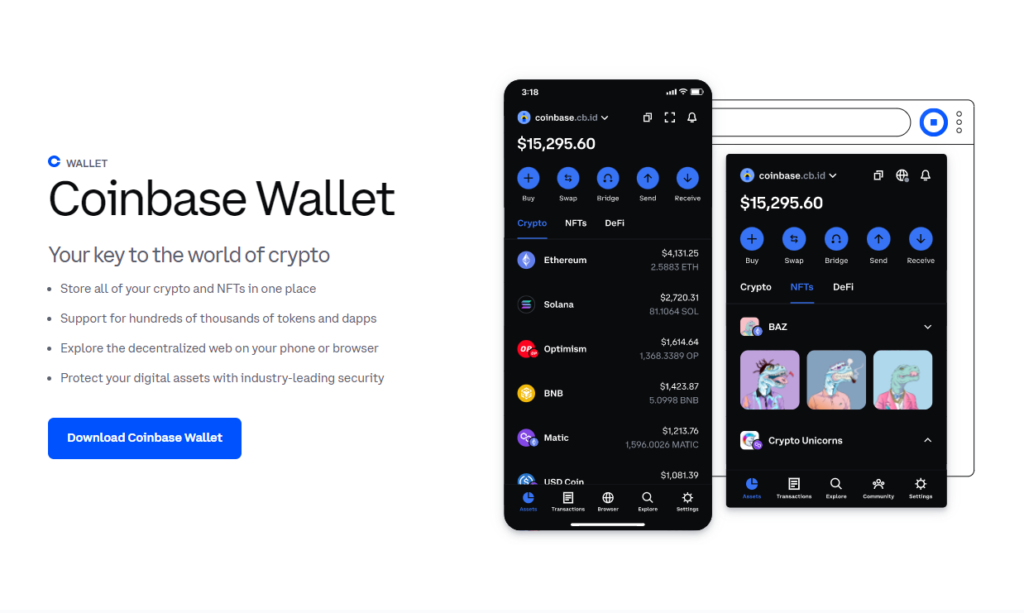Table of Contents
Cryptocurrencies have gained significant popularity in recent years, and with this, the need for a reliable and secure cryptocurrency wallet has become more critical than ever. A cryptocurrency wallet is a digital tool that enables individuals to store, manage, and transact cryptocurrencies. With the number of cryptocurrencies available increasing, choosing the right wallet has become essential. In this article, we will explore what a cryptocurrency wallet is, the different types of wallets available, and one upcoming cryptocurrency wallet by a startup.
What is a Cryptocurrency Wallet?
A cryptocurrency wallet is a digital tool used to store, manage, and transact cryptocurrencies. Cryptocurrencies are digital assets that require a specialized storage system to ensure the safekeeping of private keys. A cryptocurrency wallet provides users with a private key, which is a unique combination of letters and numbers. This private key allows users to access their cryptocurrency funds, make transactions, and manage their portfolio.
Cryptocurrency wallets are similar to a traditional wallet, where individuals store their physical currency, such as cash or credit cards. However, with cryptocurrency wallets, there is no physical presence. Instead, everything is stored electronically, with a unique private key serving as a password to access the funds.
What Types of Cryptowallets are Available?
There are several types of cryptocurrency wallets available, each with its own unique features and benefits. Let’s take a closer look at each type of wallet and some examples of popular wallets:
Hardware wallets

Also known by other names:
- Cold wallets (because they are offline)
- Offline wallets (because they do not need an internet connection to operate)
- Physical wallets (because they are tangible devices)
Hardware wallets are physical devices that store cryptocurrency offline. They are known for their security features, making them an excellent option for individuals with large cryptocurrency holdings. Hardware wallets are designed to keep private keys offline, making it difficult for hackers to gain access to them. They also require a PIN or password to access funds.
Examples of hardware wallets
- Ledger Nano X,
- Trezor Model T,
- KeepKey.
Advantages:
- High level of security due to offline storage of private keys
- Multiple layers of protection, including PIN codes and backup options
- Easy to use and user-friendly interfaces
- Compatibility with multiple cryptocurrencies
Disadvantages:
- Relatively high cost compared to other types of wallets
- Limited accessibility, as users need to have their physical device with them to access their funds
- The risk of loss or damage to the physical device.
Software wallets

Also known by other names:
- Hot wallets (because they are online)
- Online wallets (because they require an internet connection to operate)
- Digital wallets (because they are software-based)
Software wallets are digital wallets that store cryptocurrency on a computer or smartphone. They are the most common type of cryptocurrency wallet and are suitable for those who make frequent transactions. Software wallets come in different forms, including desktop, mobile, and online wallets. They are convenient and easy to use, but they can also be more susceptible to hacking and malware attacks.
Examples of software wallets
- Exodus,
- Atomic Wallet,
- Electrum.
Advantages:
- Easy to set up and use
- Compatibility with multiple operating systems
- Can be free or low cost, depending on the wallet
- Good for frequent trading or transactions
Disadvantages:
- Susceptible to hacking and malware attacks, especially when connected to the internet
- Risk of losing funds if the device is lost or damaged
- Security is not as high as hardware wallets
Web wallets

Also known by other names:
- Hosted wallets (because a third-party service provider manages the private keys)
- Non-custodial wallets (because the user has complete control over their private keys)
- Browser-based wallets (because they operate through a web browser)
Web wallets are cryptocurrency wallets that operate through a web browser. They are accessible from any device with an internet connection, making them convenient for users who need to access their funds on the go. Web wallets can be either hosted or non-hosted. Hosted web wallets are wallets where a third-party service provider manages the private keys, while non-hosted web wallets are wallets where users have control of their private keys.
Examples of web wallets
- MyEtherWallet,
- MetaMask,
- Coinbase Wallet.
Advantages:
- Convenient and accessible from anywhere with an internet connection
- User-friendly interfaces
- Compatibility with multiple cryptocurrencies
- Can be free or low cost, depending on the wallet
Disadvantages:
- Third-party service providers have control of the private keys, which can make them susceptible to hacking and security breaches
- Risk of losing funds if the service provider shuts down or if the user loses their login information
- Less secure compared to hardware wallets
Paper wallets

Also known by other names:
- Physical wallets (because they are tangible)
- Printed wallets (because they are printed on paper)
- Hard wallets (because they are not digital)
Paper wallets are physical copies of private keys printed on paper. They are considered the most secure way of storing cryptocurrency since they are not connected to the internet. Paper wallets are created by generating a pair of public and private keys using a key generator, which can be done online or offline. The private key is then printed onto paper, along with a QR code that represents the public key.
To use a paper wallet, the user simply scans the QR code or types in the public key, and the transaction is processed using the private key. Since the private key is stored on paper and not online, paper wallets are considered to be highly secure, especially for long-term storage. However, they are not very convenient for frequent transactions, and the paper can be easily lost or damaged.
You can generate, print, and download a paper wallet on WalletGenerator.net.
Advantages:
- Considered to be the most secure way of storing cryptocurrency due to offline storage of private keys
- Can be generated for free using online services or software tools
- No risk of hacking or malware attacks
Disadvantages:
- Not convenient for frequent trading or transactions
- Risk of loss or damage to the paper wallet
- No backup options in case of loss or damage to the paper wallet.
All-In-One Crypto Wallet
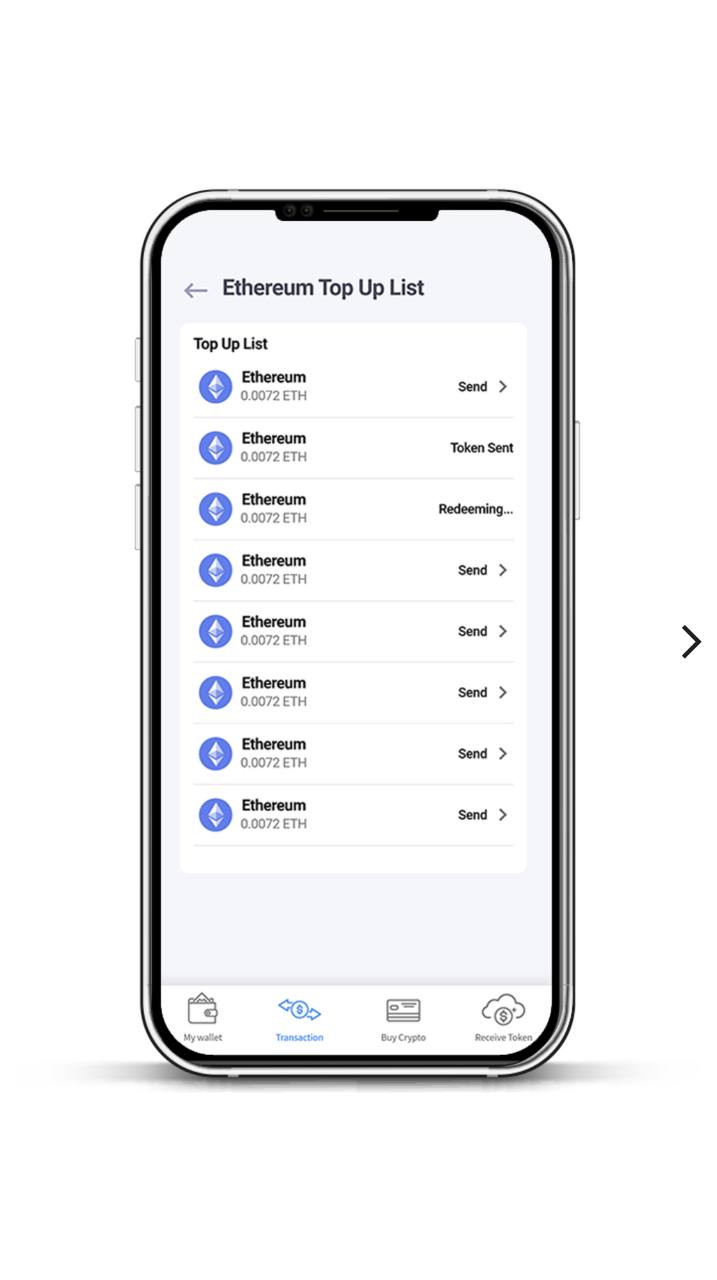
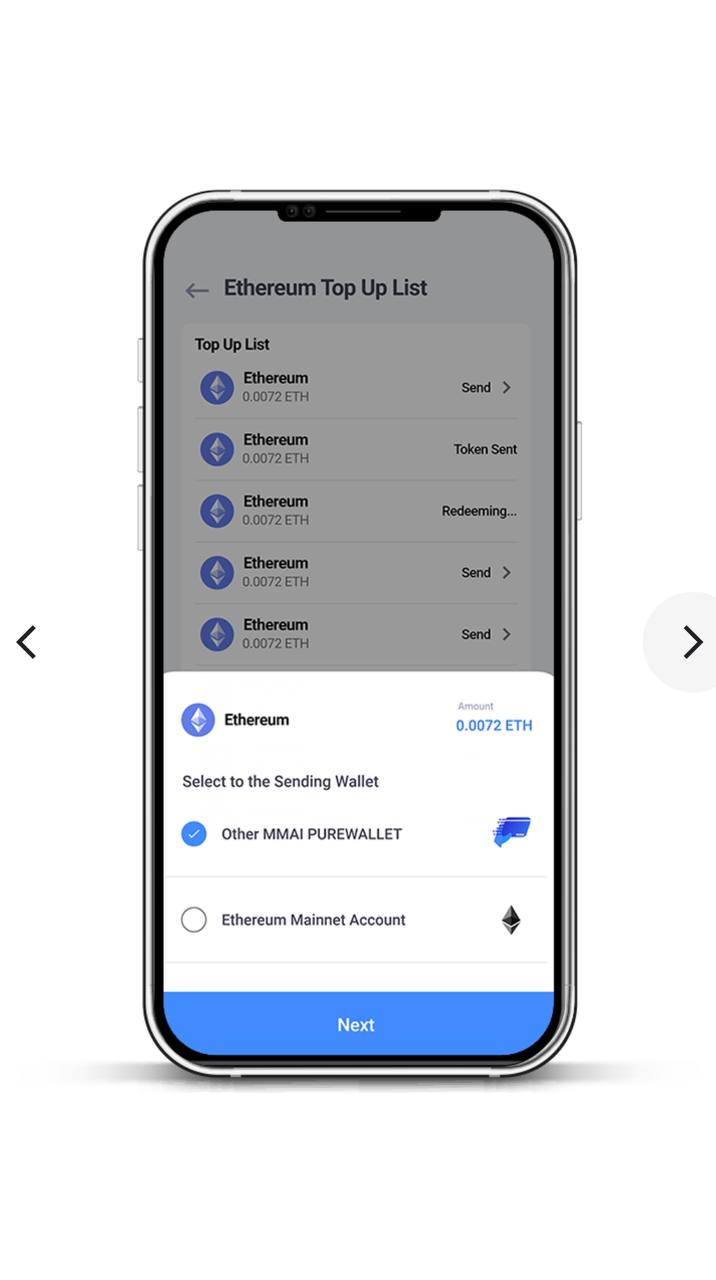
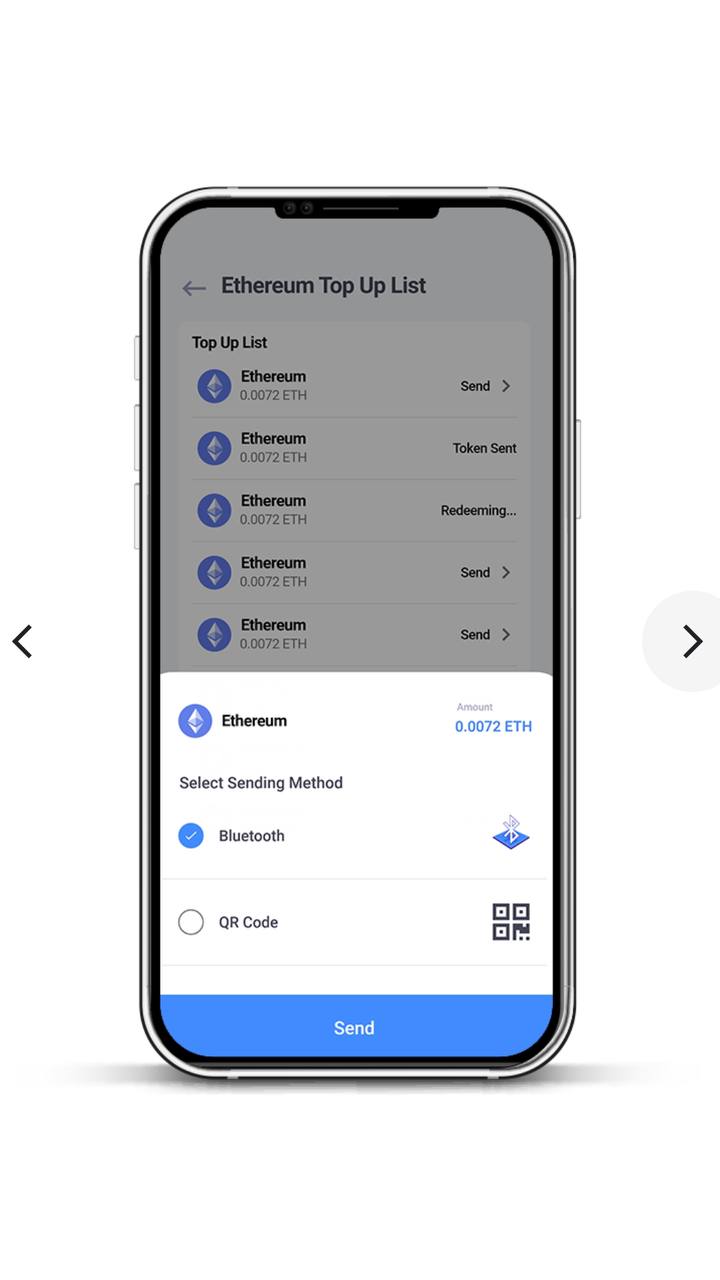

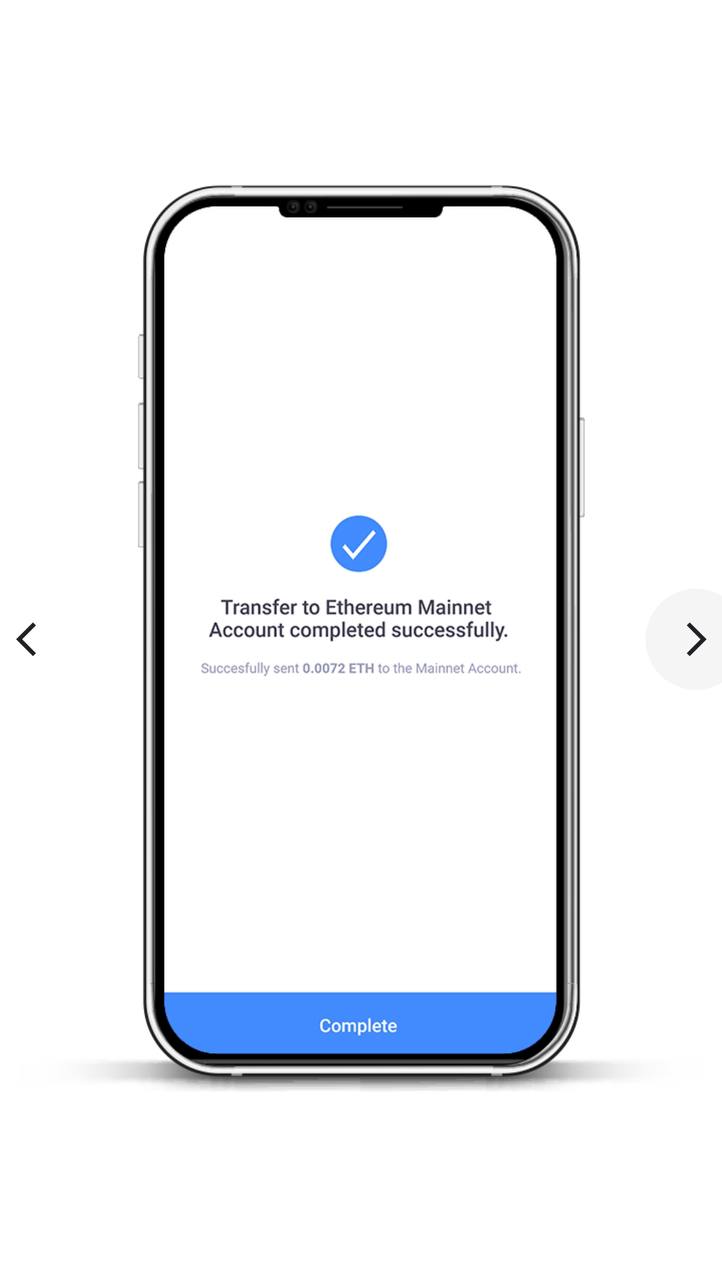
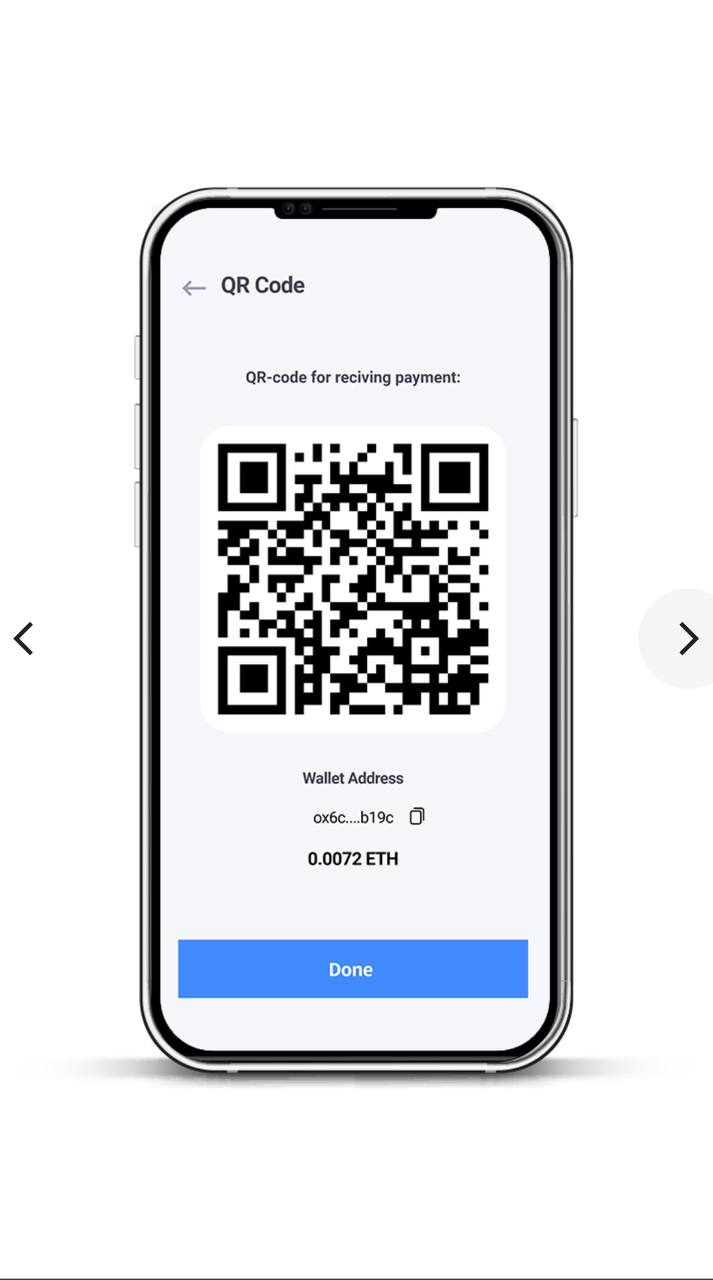
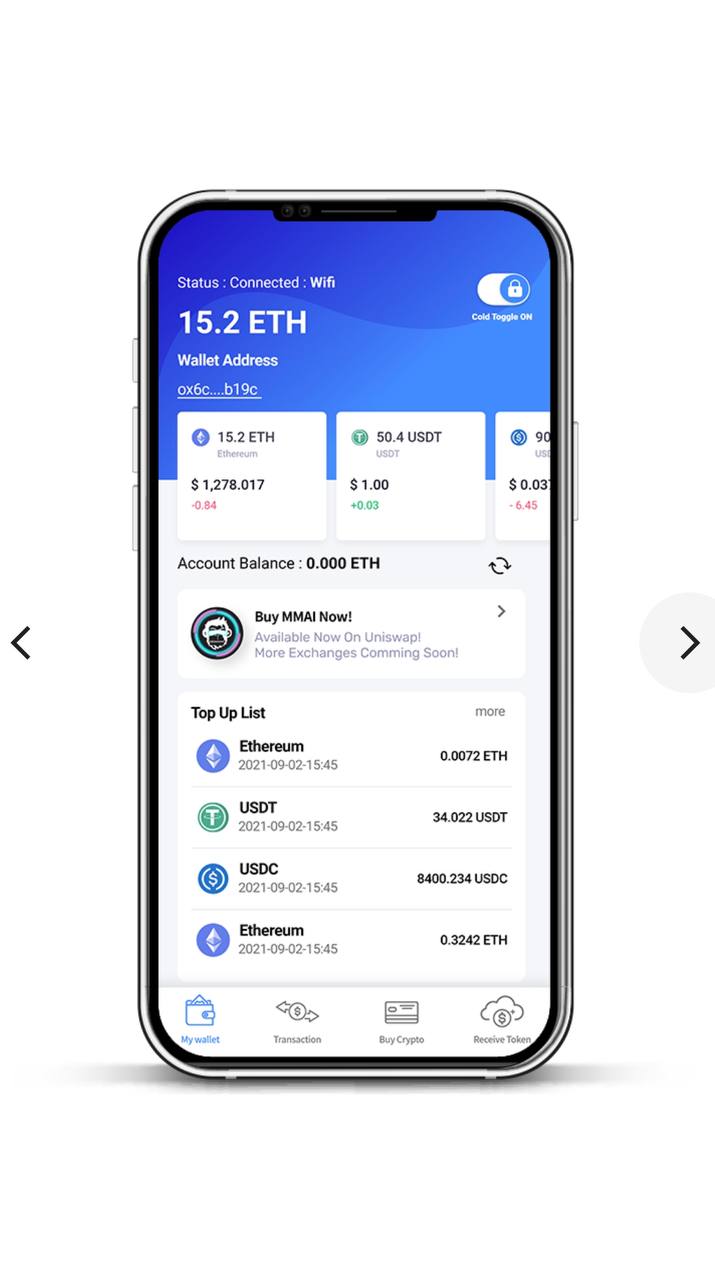
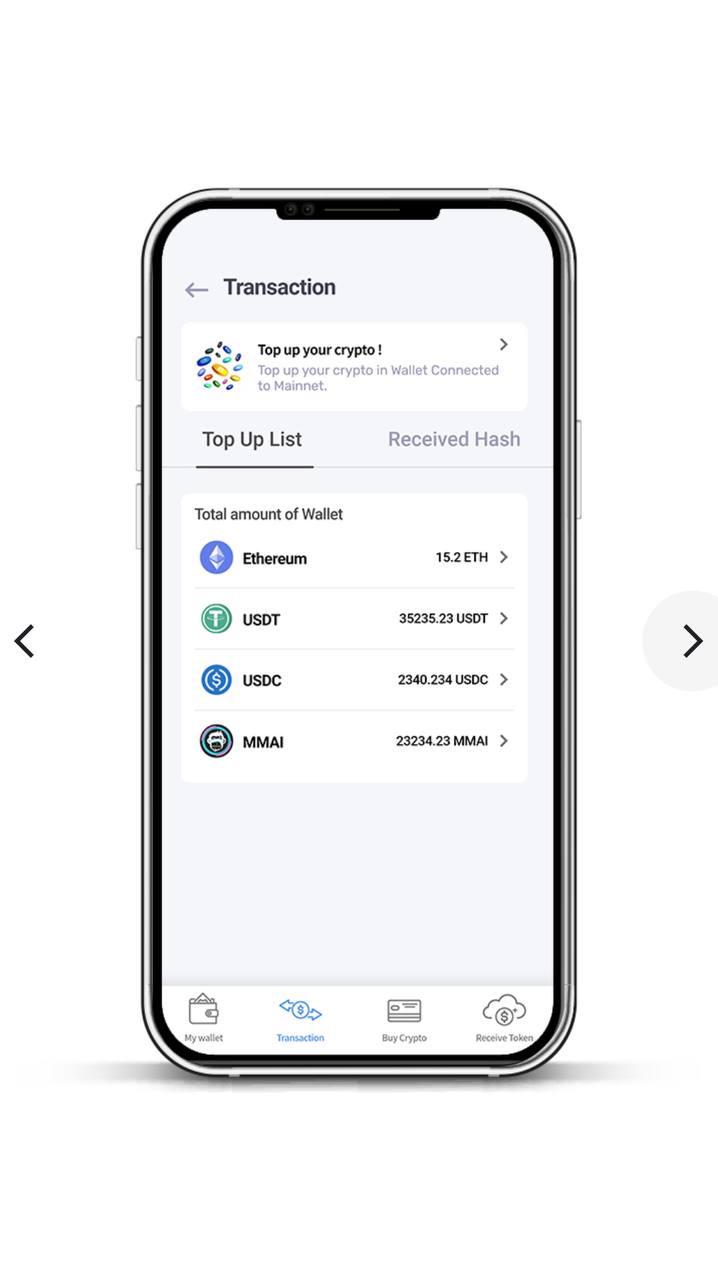
Recently, an MMAI developed and launched an all-in-one cryptocurrency wallet that combines three wallets into one. The All-In-One Wallet combines the benefits of a web wallet, hardware wallet, and an offline wallet.
The web wallet feature allows users to access their cryptocurrency funds from any device with an internet connection. Users can buy, sell, and trade cryptocurrencies in real-time without needing to download software or use a physical device. This makes the All-In-One Wallet convenient and easy to use.
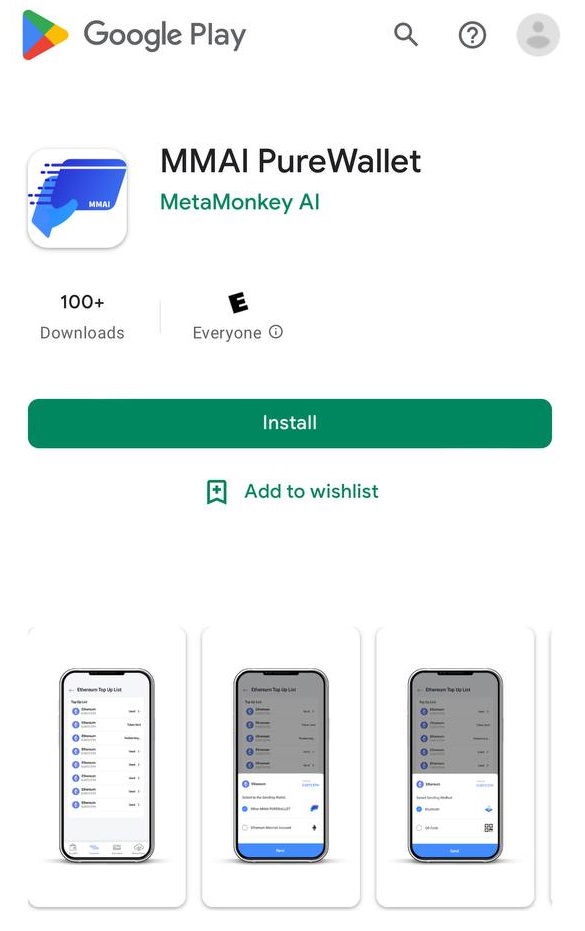
The hardware wallet feature offers high-level security by storing private keys offline. This feature is essential for individuals who hold significant cryptocurrency assets and want to keep them safe from hacking and other online threats. The All-In-One Wallet’s hardware wallet feature allows users to keep their private keys offline and access their funds only when they need to.
The offline wallet feature is unique and patented by MMAI. This feature allows users to make offline transactions in places with limited or no internet connectivity. This feature is a game-changer for individuals who live in areas with limited internet connectivity and want to be able to access and transact their cryptocurrency funds without the need for an internet connection.
Advantages of All-In-One Wallet:
- All-in-one wallet combines the benefits of a web wallet, hardware wallet, and an offline wallet
- High-level security provided by the hardware wallet feature
- Convenience and accessibility of web wallet feature
- Ability to make offline transactions in areas with limited or no internet connectivity
- Patent pending offline wallet feature
Disadvantages of All-In-One Wallet:
- Limited information available on the wallet’s development and security measures
- Not yet widely adopted by the cryptocurrency community
Securing and Backing Up Cryptocurrency Wallets
One of the most critical aspects of owning a cryptocurrency wallet is ensuring its security and backing up the wallet. Cryptocurrency wallets are often targeted by hackers and cybercriminals, making it essential to implement security measures to protect them from unauthorized access.
Tips to secure and back up cryptocurrency wallets:
Use a strong password
A strong password is essential to prevent unauthorized access to the wallet. It is recommended to use a complex password with a combination of letters, numbers, and symbols.
Enable two-factor authentication (2FA)
Two-factor authentication adds an extra layer of security to the wallet by requiring users to provide a second form of authentication, such as a one-time code, to access their funds.
Keep the private key offline
Hardware wallets and paper wallets keep the private key offline, making them less susceptible to hacking attacks. It is recommended to store the private key in a secure location and never share it with anyone.
Back up the wallet
It is essential to back up the wallet regularly to prevent the loss of funds in case of loss or damage to the device or paper wallet. Backing up the wallet involves storing a copy of the private key in a secure location.
Keep the wallet software up to date
Wallet software updates often contain security patches that address known vulnerabilities. It is essential to keep the wallet software up to date to ensure its security.
Conclusion
Choosing the right cryptocurrency wallet is essential to ensure the safekeeping and management of cryptocurrency funds. There are various types of wallets available, each with its own unique features and benefits. It is recommended to consider the level of security, convenience, and accessibility when choosing a cryptocurrency wallet. Additionally, implementing security measures such as using a strong password, enabling two-factor authentication, keeping the private key offline, and backing up the wallet regularly can help ensure the security of the wallet and prevent the loss of funds.
References:
- Andreas Antonopoulos. (2014). Mastering Bitcoin: Unlocking Digital Cryptocurrencies. O’Reilly Media.
- Investopedia. (2022). Cryptocurrency Wallet. Retrieved from https://www.investopedia.com/
- Ledger. (n.d.). Ledger Nano X. Retrieved from https://www.ledger.com/products/ledger-nano-x
- MyEtherWallet. (n.d.). MyEtherWallet. Retrieved from https://www.myetherwallet.com/
- Trezor. (n.d.). Trezor Model T. Retrieved from https://trezor.io/model-t/
- WalletGenerator. (n.d.). Paper Wallet. Retrieved from https://walletgenerator.net/
- WalletList. (n.d.). Top 20 Best Cryptocurrency Wallets in 2022. Retrieved from https://www.walletlist.com/best-cryptocurrency-wallets/
- MMAI All-In-One Wallet. Retrieved from https://mmaipure.com/
Disclaimer
The information provided in this article is for educational purposes only and should not be considered as financial advice. Cryptocurrency investments are inherently risky, and individuals should conduct thorough research and consider the potential risks before making any investment. The author and publisher of this article do not guarantee the accuracy, timeliness, or completeness of any information provided in this article. The author and publisher shall not be liable for any errors, omissions, or inaccuracies in the information or for any actions taken in reliance thereon. Readers are encouraged to seek independent financial advice and conduct their own research before investing in any cryptocurrency.
